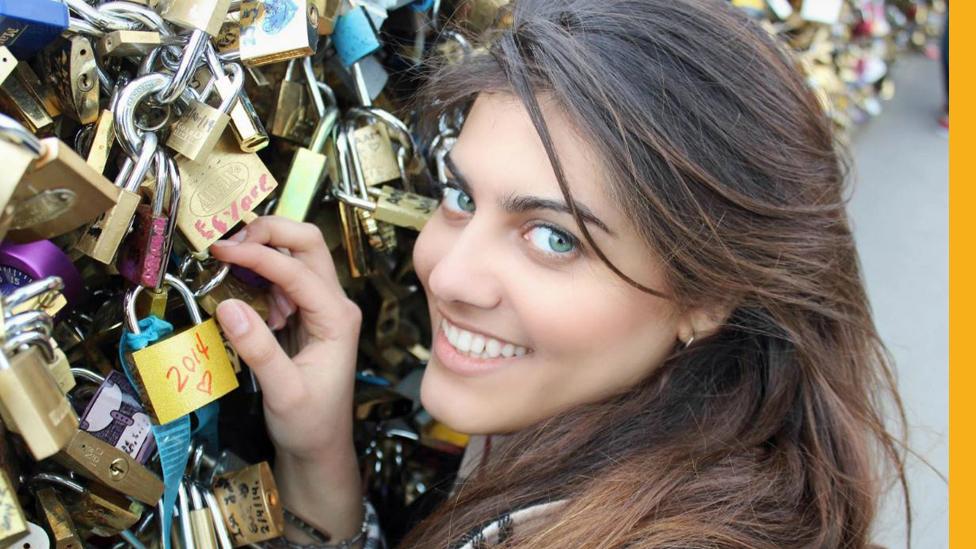British Asians more socially conservative than rest of UK, survey suggests
- Published
Is homosexuality still taboo in British Asian families? BBC Three investigates
British Asians are more socially conservative - and more optimistic - than the wider UK population, a ComRes survey for the Asian Network suggests.
The survey found that less than half of respondents - 43% - thought same-sex relationships were acceptable.
It also found more than half (54%) of British Asians had "toned down" their Asian identity to "fit in".
More than 2,000 British Asians responded to the poll as part of the BBC's Big British Asian Summer.
A similar number of UK citizens responded to the same questions to generate a reflection of the views of the wider population.
Of the 2,026 respondents to the British Asian survey, 1,197 were born in the UK - with countries of origin being predominantly India, Pakistan, Bangladesh, and Sri Lanka.
The survey will be discussed on a special live debate show on the Asian Network, on 14 August from 22:00 BST - midnight.
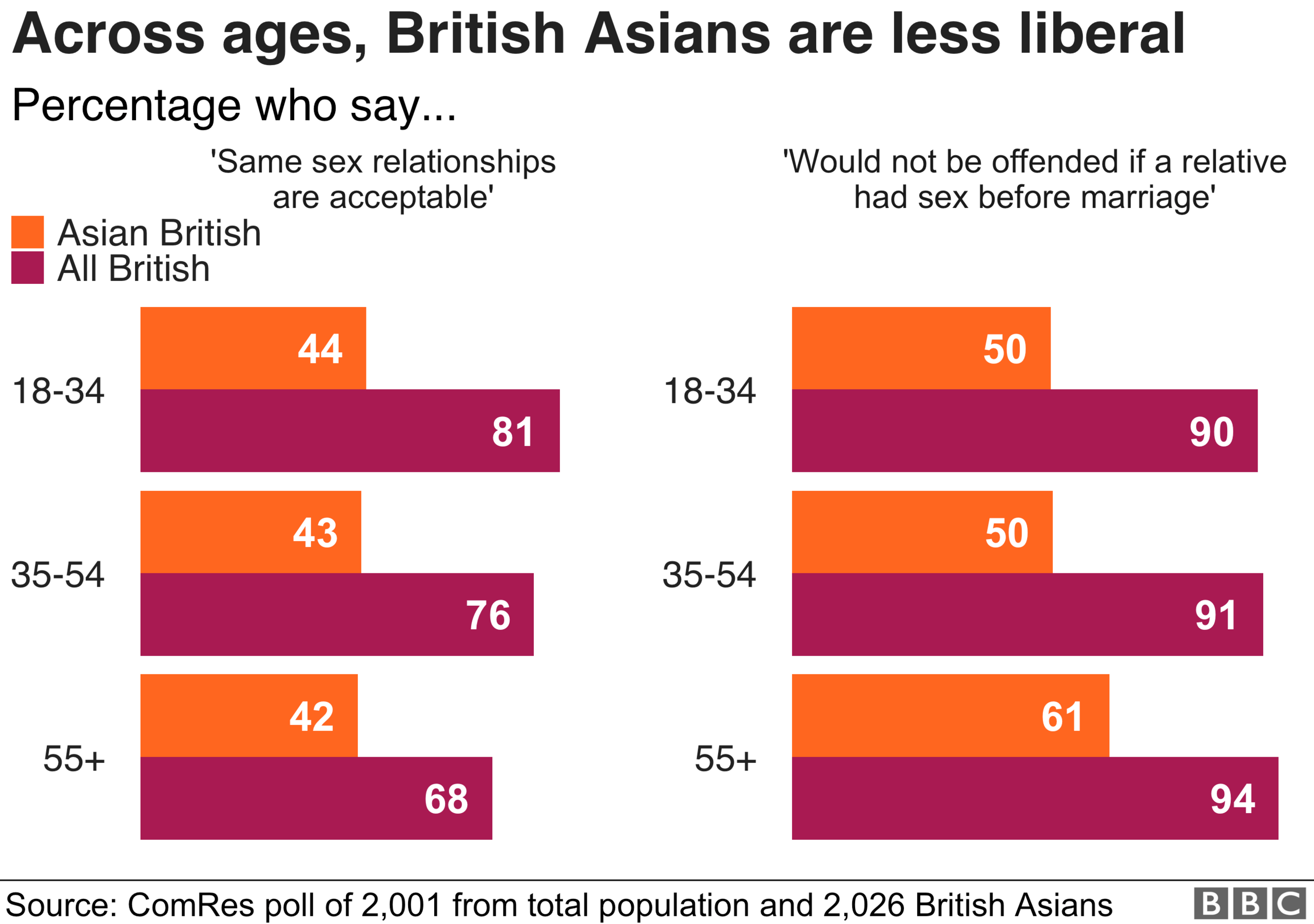
According to the surveys, just 5% of UK-wide respondents would be offended if a relative had sex before marriage - while more than a third (34%) of British Asians would be.
On same-sex relationships, 15% of UK-wide respondents said they were not acceptable. This rose to more than a third (36%) of British Asians.
The surveys also revealed differences in how age affects attitudes.
In the UK-wide survey, younger people were more supportive of same-sex relationships, compared to older people. But in the British Asian survey, attitudes were broadly similar across all age groups.
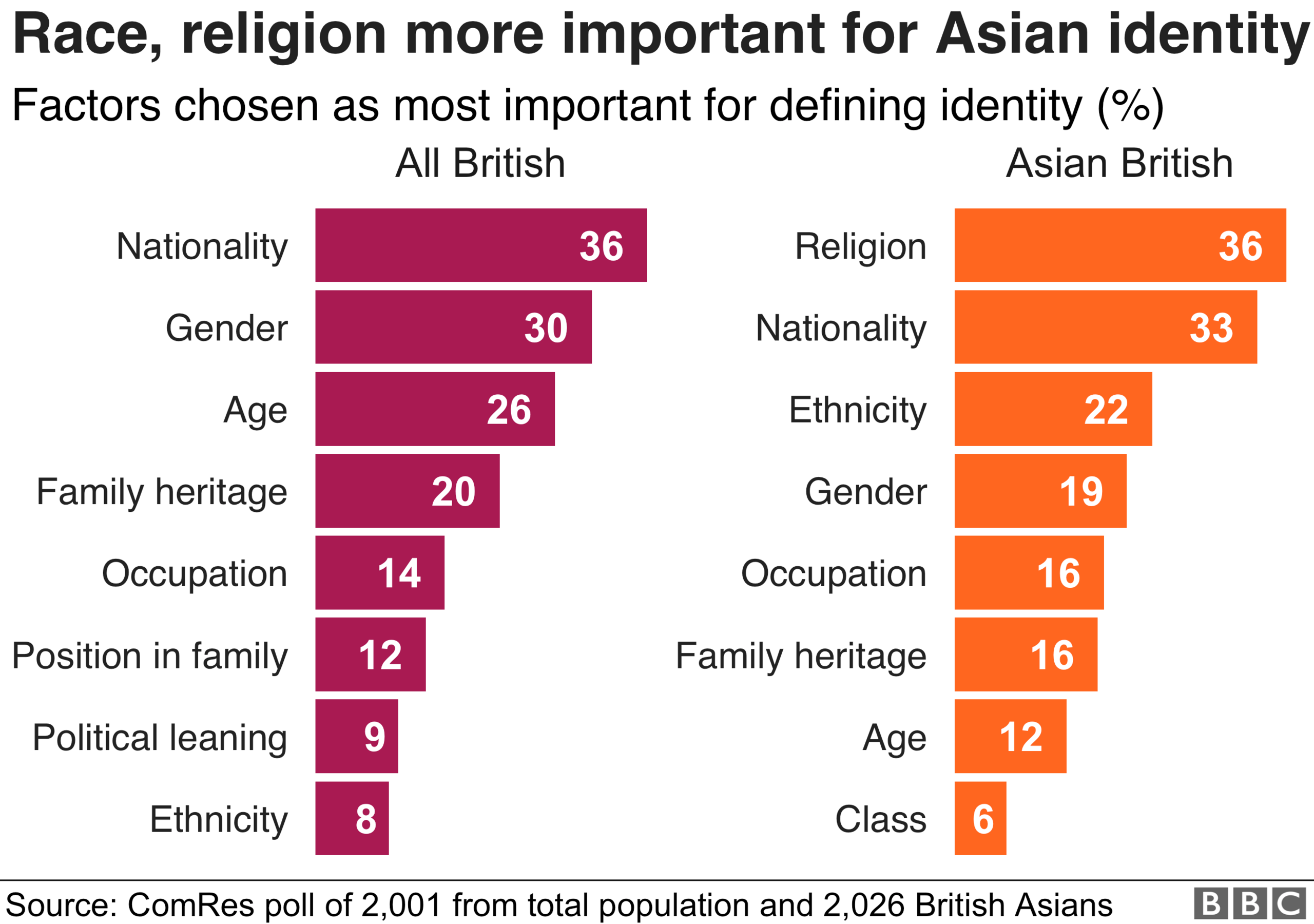
On religion, over half of 18-34 year olds in the general population said it wasn't important to them "at all". Just 8% of young British Asians said the same.
Overall, 46% of British Asians said it was "very important" to them - compared to 12% of the general population.
Meanwhile, when asked to describe Asian culture, 33% of British Asians said it was "modernising" and 25% "progressive". The UK-wide response was 9% and 8% respectively.
When asked about changing their behaviour to fit in, about 12% said they frequently "toned down" their Asian identity - 23% said occasionally and 18% rarely. Some 79% said at least some of their cultural traditions were dying out.
Overall, though, British Asians were more hopeful about their future than the population at large.
Some 72% said Britain is somewhere you can fulfil your aspirations and ambitions, compared to 64% of the population at large.
The most optimistic group of all were British Indians - with over three-quarters believing in a bright future.
Three generations of British Asian families argue the toss over relationships and dating.
The survey also asked about other topics, including the police and the monarchy:
59% of British Asians trusted the police, compared to 65% of of the wider population
51% of British Asians wanted to keep the monarchy, with 26% preferring a republic (the rest were unsure)
Across the UK, 65% wanted to keep the monarchy, with 21% preferring a republic
48% of British Asians saw religion as a source of division and conflict, compared to 77% of the wider population
Meanwhile, 30% of British Asians thought Britain has become a "more tolerant place" in the last couple of years - compared to 22% of the general population
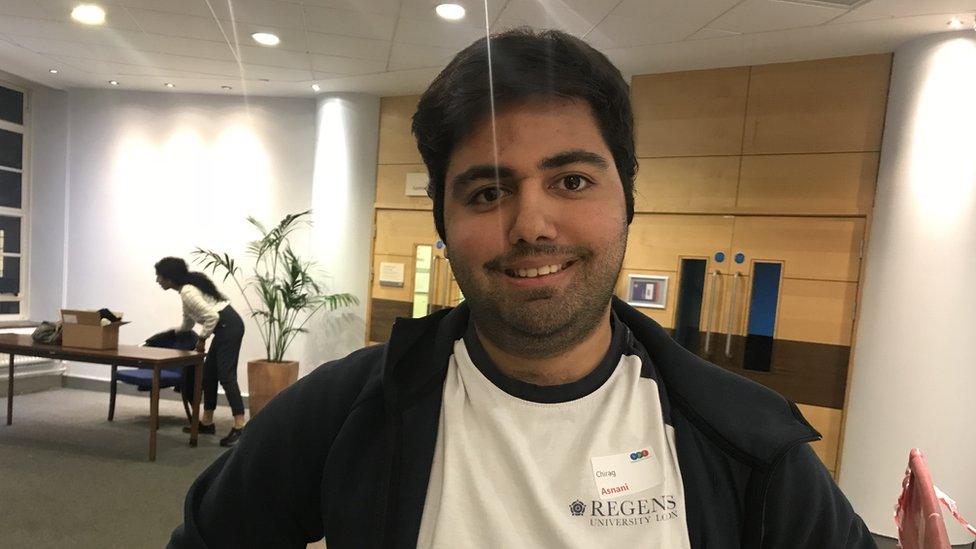
Chirag said people have had difficulty pronouncing his name
Chirag Asnani, 25, could agree with parts of the survey's findings - he told the BBC's Asian Network he changed his name to try to fit in with British culture.
At school, he temporarily called himself Craig because people mispronounced Chirag - and because he thought Craig was more of a "white name".
"At the time I thought it would be cool because no-one else had the name Chirag - and also Daniel Craig was just becoming James Bond at that point," he said.
"I thought it would catch on. After I while I thought 'this is dumb' and my parents thought 'this is dumb'.
"So I went back to Chirag and just made sure people were saying it right."

Analysis: 'Living with contradiction'
By BBC Asian Network's Nomia Iqbal
The survey confirms what many British Asians have always said - bridging two cultures involves complication and contradiction.
More than half of respondents say that they've toned down their Asian identity in order to better fit into British society. This could mean people using Western-sounding names or altering their accents.
Perhaps it's a reminder that ultimately this is how integration can happen. For their parents, who came to the UK after World War II, the intention hadn't necessarily been to stay. Facing racism and being few in number, many held tight to community and tradition to retain a sense of identity.
When they ended up staying so did those values which many passed to their British-born children. This is perhaps why the survey suggests that the British Asian community has more socially conservative views on gay relationships and sex before marriage, even amongst the younger generation.
But it seems that British Asians are, as a whole, more optimistic than the general population - indicating that despite the internal and external challenges, people are confidently navigating society.
Living with contradiction becomes second nature.

Qudrat Khan, 24, said she would straighten her hair and tried to stay out of the sun because she "wanted to be as light and fair as possible to adhere to these western beauty standards".
"There have definitely been points where I have diluted aspects of my identity to try and fit with the more British norm," she said.
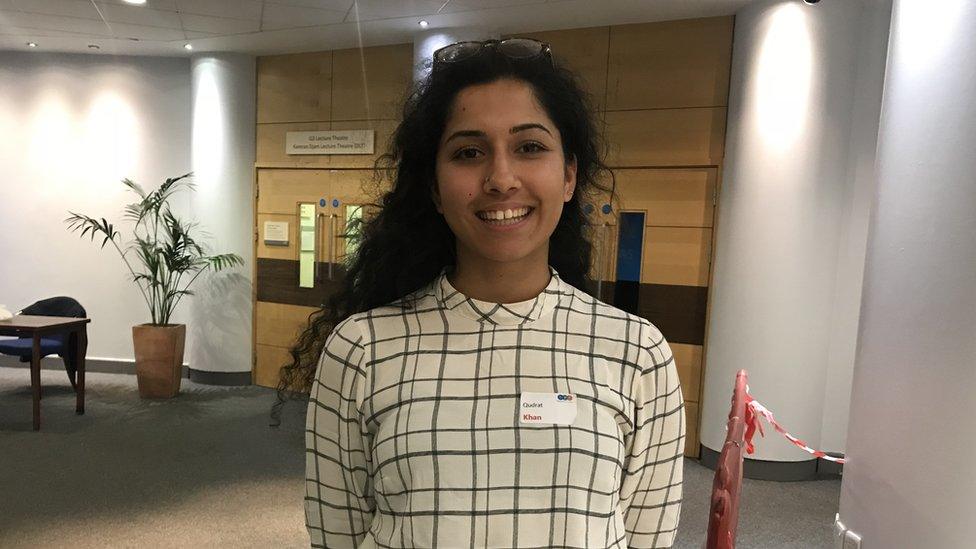
Qudrat Khan said her curly hair made her stand out as a child
Madihah Khan, 24, has on occasion had to "Anglicise" her name to help with pronunciation and, when going to university, "definitely did down my Muslimness".
Meanwhile, Shahzam Uddin, 28, said as a boy he felt conflicted by his Asian and British roots - but as he got older "just accepted" it.
Ms Khan added that people might turn to religion more if they do not feel accepted by wider society.
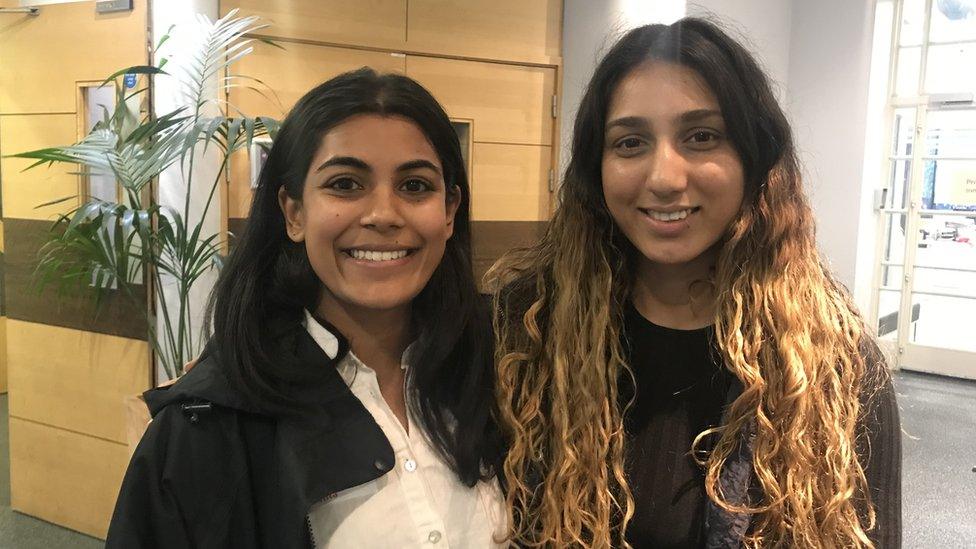
Madihah Khan (right) said religion plays a part in conservative attitudes
The Big British Asian Summer is a season of programmes across the BBC this August, in which British Asians share their stories.
- Published19 July 2017
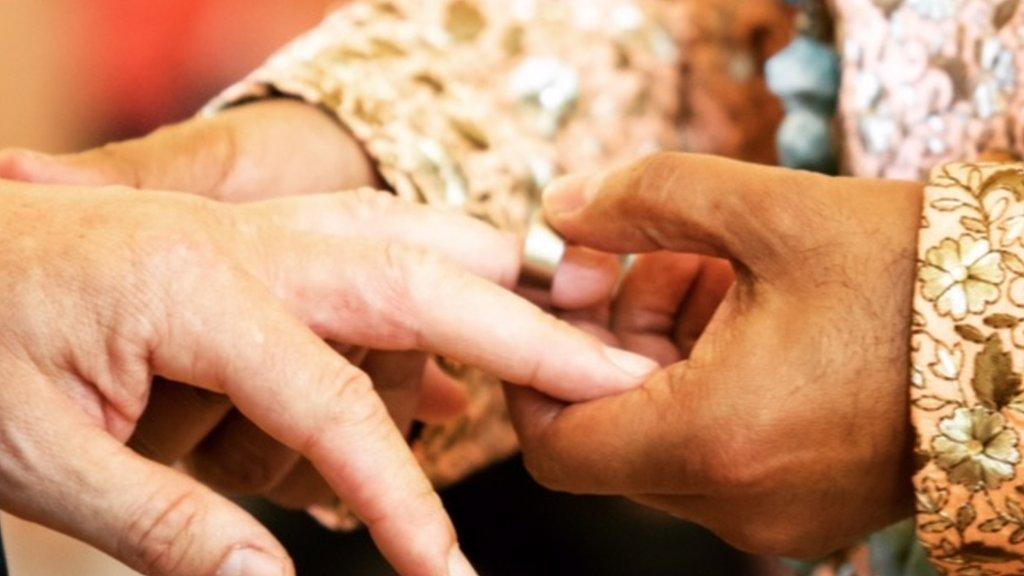
- Published28 July 2018
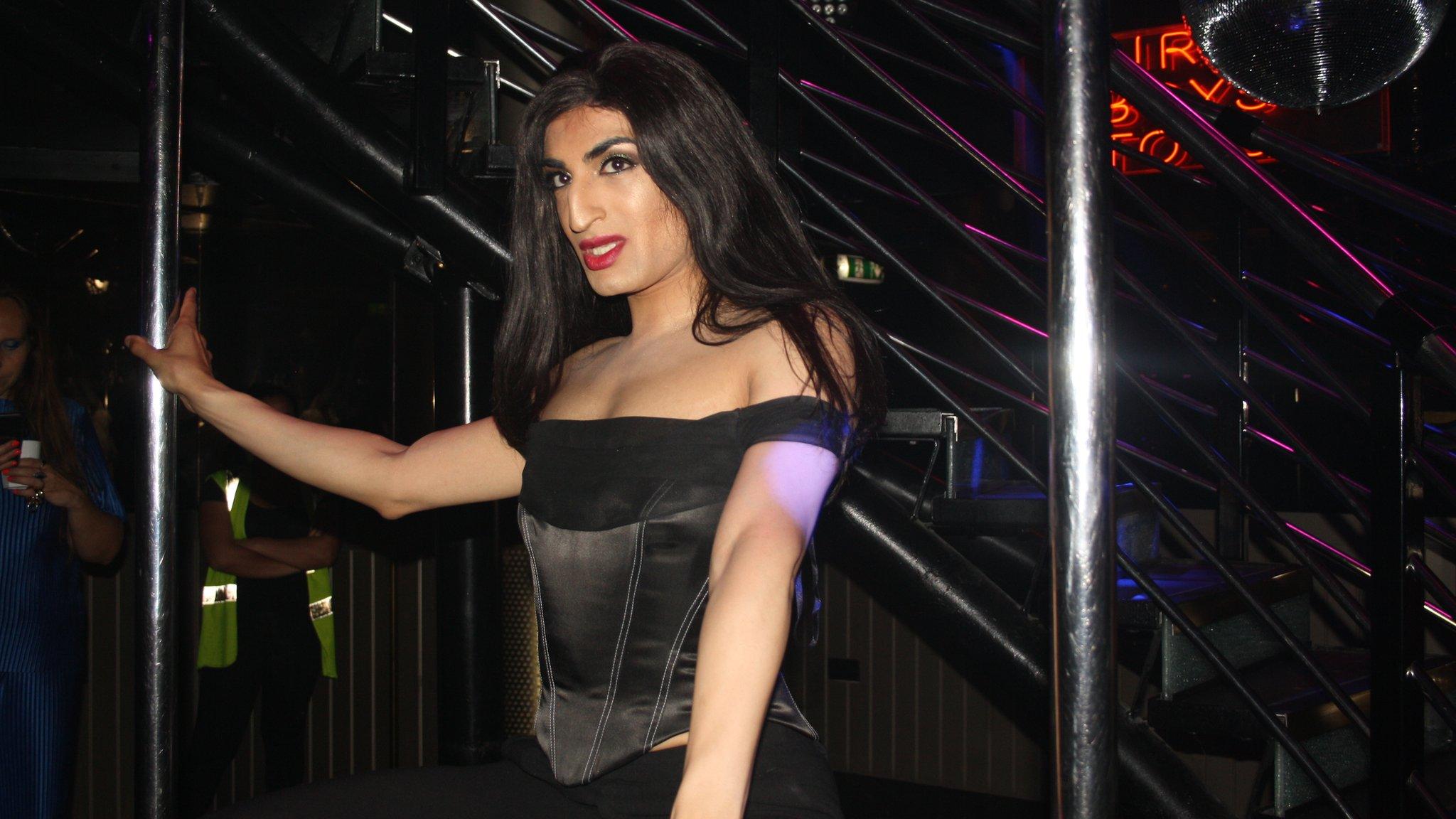
- Published14 March 2018
